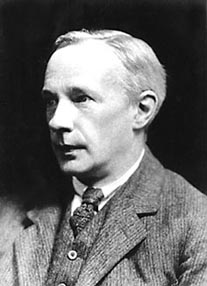Other things: Chapter III of Principia Ethica is now online
Here's a pretty old legacy post from the blog archives of Geekery Today; it was written about 20 years ago, in 2005, on the World Wide Web.
As I’m sure you’ve noticed, I’ve been on something of a break from writing here for the past few weeks (due partly to travel, partly to lack of motivation, and partly to wanting to spend some quiet time away from it). I don’t know whether I’ll feel like picking up on the rate of posting in the near future; I do know that I’ll probably be taking more time off about a month from now when I head off for summer work in New York (same thing as last year: I’ll be working for the Center for Talented Youth, TA’ing two courses in Logic for extremely gifted 12-16 year olds).
I’m trying to wean myself off posting Sorry I’m not posting
posts; but my purpose here is a bit different anyway. While I may not have the drive to post much right now, I do at least have the energy to copy out things that people smarter than I am once wrote. Thus, I’ve been making some substantial progress in transcribing the third chapter of G.E. Moore’s Principia Ethica for online reading and citation. It’s not complete yet (Chapter III is one of the longest chapters in the book), but I am mostly keeping up a pace of a section a day or more; which means that if I keep a steady pace the chapter should be complete in under three weeks. (Knock on wood.)
 Chapter III contains Moore’s extended treatment of ethical hedonism — that is, the theory that pleasure is the only thing good in itself (this is how Moore defines it, anyway; he claims that some hedonists might not agree to the formulation explicitly but that they have to rest on it at least implicitly for their arguments to go through). The first part of the chapter is an addendum to his treatment of naturalistic ethics in Chapter II: he attacks arguments for hedonism based on the naturalistic fallacy, using John Stuart Mill’s Utilitarianism as an example. (The case is mostly pretty convincing, although I think he is unfair to Mill toward the end and doesn’t adequately discuss Mill’s notion of goods that are desired as
Chapter III contains Moore’s extended treatment of ethical hedonism — that is, the theory that pleasure is the only thing good in itself (this is how Moore defines it, anyway; he claims that some hedonists might not agree to the formulation explicitly but that they have to rest on it at least implicitly for their arguments to go through). The first part of the chapter is an addendum to his treatment of naturalistic ethics in Chapter II: he attacks arguments for hedonism based on the naturalistic fallacy, using John Stuart Mill’s Utilitarianism as an example. (The case is mostly pretty convincing, although I think he is unfair to Mill toward the end and doesn’t adequately discuss Mill’s notion of goods that are desired as parts
of happiness.)
That’s as far as I’ve gotten in my transcription of the chapter so far; but if you want a preview of what’s to come in the next few days, Moore goes on to consider whether hedonism can be defended on grounds of ethical intuitions, once defenses based on the naturalistic fallacy have been set aside. He argues no; this involves what I think are some of the best arguments in the book and a long consideration of Sidgwick (Moore’s ideas about the proper methods of ethical philosophy owe a lot to Sidgwick’s intuitionism; but Sidgwick thought that intuitionist methods supported hedonism, and Moore thinks they decisively refute it). Finally, he wraps up with some rather brief and unfair polemics against the two ethical schools that seem most commonly to be based on hedonist arguments–Egoism and Utilitarianism.
There’s a lot to complain about in the chapter, but also a lot to love; it’s certainly something that anyone engaging in ethics or moral psychology ought to read and engage with. Read, cite, and be merry!
Moore’s work is really interesting
Discussed at www.radgeek.com /#
Geekery Today: